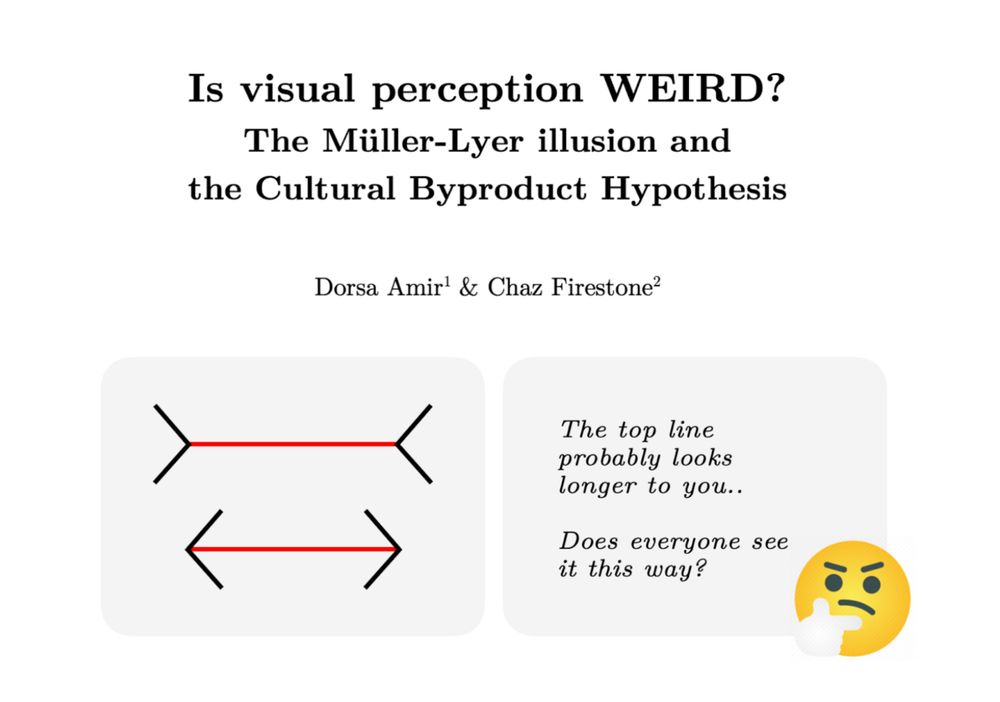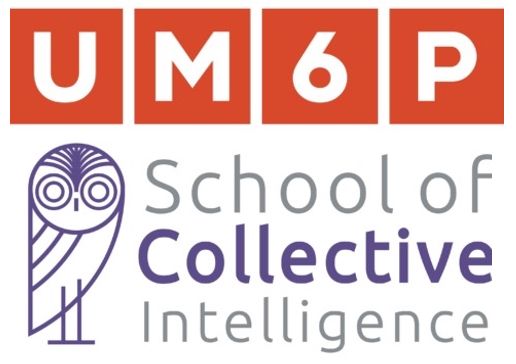Thus I argue that so-called 'collective propitiatory obligations' already constitute a form of moralising religion, even before the 'Axial Age'. And they persist today in the 'little traditions' of world religions not because of superstition, but because they powerfully support local cooperation.
31.07.2025 16:27 — 👍 1 🔁 0 💬 0 📌 0
This isn't so different from e.g. Christian sin, in which harming others has often been thought of as wrong because it's disobedient to God. In both cases, the proximate cause of punishment is disobedience, but the ultimate cause is an interpersonal violation. In this case, defection/free-riding.
31.07.2025 16:27 — 👍 0 🔁 0 💬 1 📌 0
Punishment happens when designated individuals fail to contribute to the common good. Emically, sacrificial obligations on behalf of the community are no different from public goods problems like maintaining a dam or a commons. Punishment results from people failing each other, not just the deity.
31.07.2025 16:27 — 👍 1 🔁 0 💬 1 📌 0
Secondly, collective punishment for incorrect offerings to deities. Traditionally, this is seen as amoral, because the deity doesn't care about interpersonal behaviour; it is simply angered by not receiving its due. But I argue this is (often) a misconception.
31.07.2025 16:27 — 👍 0 🔁 0 💬 1 📌 0
Firstly, what @manvir.bsky.social calls 'mystical harm beliefs', such as the evil eye. These are typically supernatural punishments for breaking local norms vital to social harmony. Whether or not they actually sustain cooperation, I argue they're emically a result of key interpersonal violations.
31.07.2025 16:27 — 👍 0 🔁 0 💬 1 📌 0
Beresta Books
Academic and popular non-fiction works that cross traditional disciplinary boundaries.
Enjoyed putting together two chapters for this new volume on the history of how religions have come to see supernatural punishment and reward as moral (a result of interpersonal conduct). I argue that two kinds of supernatural punishment typically seen as amoral are actually moral.
31.07.2025 16:27 — 👍 1 🔁 0 💬 1 📌 0
I'm not sure there's a single word for it. Think of Austronesian peoples in Madagascar. When they arrived in the 6th century, they intermarried with 'indigenous' Bantu people. By the time the French arrived, they'd become 'indigenous'. You need whole sentences to explain the geographical trajectory
28.02.2025 13:06 — 👍 2 🔁 0 💬 0 📌 0
'Indigenous' doesn't mean this. As you say, it comes from colonialism and it's only meaningful relative to an invading colonial population. That's why the only people who use it to refer to English people are on the far right - it's a racist dog whistle.
28.02.2025 12:57 — 👍 0 🔁 0 💬 1 📌 0
Science is a lot cheaper than most other investments. The anti-intellectual society is inescapably on the decline, abolishing its own future. Be the opposite of that. Go all-out for science, expertise and knowledge, because it pays back, many times over,
as it did for the formerly-great America
26.02.2025 10:53 — 👍 5 🔁 1 💬 1 📌 0
The Psychology of Normative Cognition (Stanford Encyclopedia of Philosophy)
In the past 5 years, there’s been an explosion of new work on the philosophy & cog sci of norms. If you want to get up to speed on it, check out this newly revised SEP entry on the Psychology of Normative Cognition by @dryan149.bsky.social, Stephen Setman & me.
plato.stanford.edu/entries/psyc...
17.02.2025 22:28 — 👍 36 🔁 12 💬 1 📌 1
"The Special Feature 'Half a Century of Cultural Evolution' assembles answers from a broad array of scientific disciplines with vastly different views on culture, but with one uniting theme: that culture evolves."
Open access
www.pnas.org/topic/565
29.01.2025 13:01 — 👍 1 🔁 6 💬 1 📌 0

Does the culture you grow up in shape the way you see the world? In a new Psych Review paper, @chazfirestone.bsky.social & I tackle this centuries-old question using the Müller-Lyer illusion as a case study. Come think through one of history's mysteries with us🧵(1/13):
25.01.2025 22:05 — 👍 1095 🔁 419 💬 33 📌 79
Great new paper from @aiyanakoka.bsky.social consistent with the argument that 'mystical harm' can be seen as moralising supernatural punishment -- for local, particularistic norm violations
24.01.2025 04:21 — 👍 4 🔁 0 💬 0 📌 0
Yes, but also, moving some from obscurantist approaches to those that actually enable cumulative intellectual progress is good. Quantitative vs. qualitative is less the issue, I think, than sense vs. nonsense
28.12.2024 12:49 — 👍 1 🔁 0 💬 1 📌 0

Cultural Evolution Society 2026 Conference Announced - Cultural Evolution Society
Announcement! The next @culturalevolsoc.bsky.social CES conference will be at UM6P in Rabat, Morocco, provisional dates 11-13th May 2026! Hosted by Mathieu Charbonneau, @sarahalami.bsky.social, @zhgarfield.com & @edseabright.bsky.social. Save the dates!
culturalevolutionsociety.org/news-and-eve...
15.11.2024 07:43 — 👍 83 🔁 56 💬 8 📌 3
Experimental anthropologist, cognitive scientist, dad, author of Ritual: How seemingly senseless acts make life worth living
Biologist, researcher in evolutionary psychology, educator, science writer & editor. Evolutionary perspectives on aesthetics, arts, music, mating, sexual strategies, personality, twinning, anthropomorphism, COVID-19 pandemic, chronotype, & climate crisis🇧🇷
Interested in politics and policy, science and health, the analogue going digital, and endemic delusion. Views my own.
Head of Molecular Psychiatry and Neurodegeneration Laboratory at Heinrich Heine University of Düsseldorf, Germany. Transmission and co-evolution mechanisms for brain function from the molecular to the individual/organismal level.
What kind of animals are we? I search for answers with leading anthropologists, philosophers, social scientists and more.
Posting as Ilari Mäkelä, host of On Humans.
https://onhumans.substack.com/about
Peasant Anthropologist @ LSE | China, Wa, Argentina | co-editor Social Analysis
. behavioural ecologist
. Foraging Ecology And Social Ties (FEASTs)
. von Humboldt postdoc fellow @ Durham
. SORTEE co-chair DEI committee
. Preprint Editor ProcB
. General Editor Hunter Gatherer Research
🌱♻️🌈🧠🌶️
✊ally to 🏳️⚧️ and BLM
fhillemann.github.io
Subverter of the dominant paradigm
Applied anthropologist, former Assoc prof, now Sr Res Scientist in PNW Med Sch. Focused on healthcare as a human rt & harm reduction ❤️🔥 & sovereignty for indigenous people (& loves dogs & dessert, but not dogs for dessert). Opinions mine, of freaking course
Philosopher writing about theory of mind, moral psychology, character judgment, social norms. I bore undergraduates for a living. #philosophy #philsky
he/him
https://sites.google.com/site/ewestraphilosophy/
Leading the way in Myanmar news. Sign up for our membership programme at https://www.frontiermyanmar.net/en/membership/
Political Science Ph.D. Candidate at the University of Michigan. Thailand/Southeast Asia analyst. Studying parties in emerging democracies and the politics of development. kenlmathis.com
Palaeoanthropologist at the Natural History Museum London.
Posts are my own, and when I repost or like, it does not signify I necessarily agree with all content https://www.nhm.ac.uk/our-science/departments-and-staff/staff-directory/chris-stringer.html
anthropologist & cognitive scientist
PhD candidate @ UCM CIS
merging cultural evolution with decision-making under uncertainty and risk
anthrocult.org
Senior Lecturer in Psychology @ Oxford Brookes University, UK // Research on cognitive & evolutionary science of religious, secular, political, conspiracy belief & imagination. #COVIDisNotOver
Professor at UCLA. Interested in family and marital dynamics, perinatal health and maternal support. Mom-mom and dog-mom.
global citizen landed in Southeast Asia from Europe - former Asia regional director Rockefeller Foundation & IDRC, senior adviser Ausaid (DFAT) and program officer Ford Foundation, now founding director @seajunction.bsky.social (www.rosaliasciortino.com)
Anthropologist, FOIA scholar, & sometimes historian of anthropology. I mostly write about FBI, CIA, and DoD efforts to undermine democratic movements at home and abroad.
Every billionaire is a policy failure.
Golden Oldie. Likes Social Cognitive Neuroscience. But not only.
The School for Advanced Research.
Create. Connect. Understand.
SAR: The only residential research institution supporting scholars & artists at the intersection of humanities, social sciences, & Native arts.
Anthropology I Archaeology I Humanities I Art



